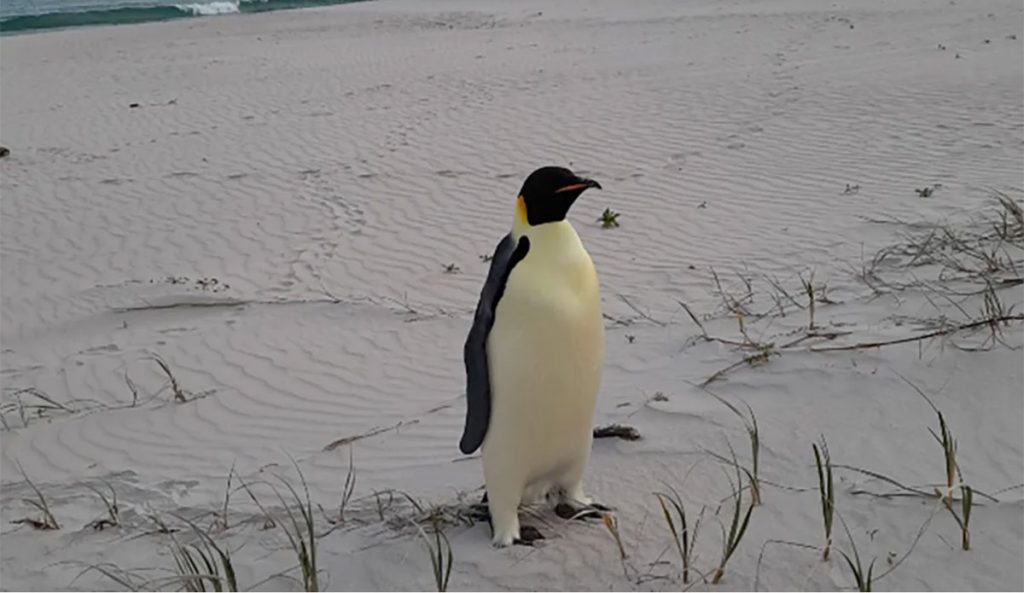On an unexpected day at Ocean Beach in Denmark, Western Australia, an emperor penguin made an astonishing appearance, surprising beachgoers who typically do not associate such a species with the region. This rare sighting occurred as the penguin, deemed lost and malnourished, waddled onto the sandy shore, having traveled thousands of miles from its natural habitat in Antarctica. According to a statement from Australia’s Department of Biodiversity, Conservation and Attractions (DBCA), these conditions are common for penguins that find themselves far from their homes, primarily due to the challenges associated with their migration routes and food availability.
The distance from Ocean Beach to Antarctica is approximately 2,500 miles, a testament to the penguin’s incredible journey. It is believed that the penguin followed marine currents that may have significantly shifted northward, leading it toward the Australian coast. Belinda Cannell, a research fellow at the University of Western Australia, highlighted the natural behavior of these penguins, which typically seek favorable currents teeming with diverse food sources. This incident suggests that environmental changes might have altered the established patterns that govern the penguin’s travel and feeding habits.
On the beach, the lost emperor penguin garnered immediate attention from locals. Surfer Aaron Fowler described the experience of witnessing the penguin’s arrival, noting its impressive size and unique demeanor. At approximately one meter tall, the emperor penguin stood out, and Fowler recounted its comical attempt to slide in the sand, reminiscent of its natural snowy habitat. The penguin’s interaction with its surroundings reflected both an instinctive behavior and a heartwarming charm, captivating those who witnessed its arrival and sparking a collective concern for its wellbeing.
After being spotted, the emperor penguin was taken under the care of a wildlife rehabilitation expert who is now overseeing its recovery. The rehabilitation process is expected to last several weeks, during which the penguin will receive the necessary nutrition and care to help it regain strength. Such efforts are crucial, as a malnourished penguin struggles to survive away from its natural resources. The commitment to rescue and rehabilitate the penguin aligns with broader conservation goals aimed at safeguarding wildlife affected by unforeseen challenges stemming from climate change and habitat disturbances.
Emperor penguins are facing increasingly precarious circumstances as their environment shifts dramatically. The impact of climate change poses serious threats to their habitat, food availability, and breeding colonies. Rising temperatures in Antarctica affect the sea ice that is essential for their breeding cycles and foraging behaviors. Consequently, these changes can have lasting consequences on the emperor penguin population, which has already shown signs of decline in some regions. The situation faced by these magnificent birds underscores the urgent need for conservation efforts that take into account the rapidly changing climate and its effects on marine ecosystems.
The appearance of the lost emperor penguin at Ocean Beach serves as both a fascinating incident and a poignant reminder of the interconnectedness of wildlife and environmental health. While the penguin’s visit brought joy and curiosity to onlookers, it also highlighted the pressing issues that species like the emperor penguin confront as they navigate an increasingly volatile world. Conservation initiatives must adapt to these challenges, ensuring not only the immediate care for animals like the stranded penguin but also developing long-term strategies to protect their habitats and preserve their way of life against the backdrop of climate change.

